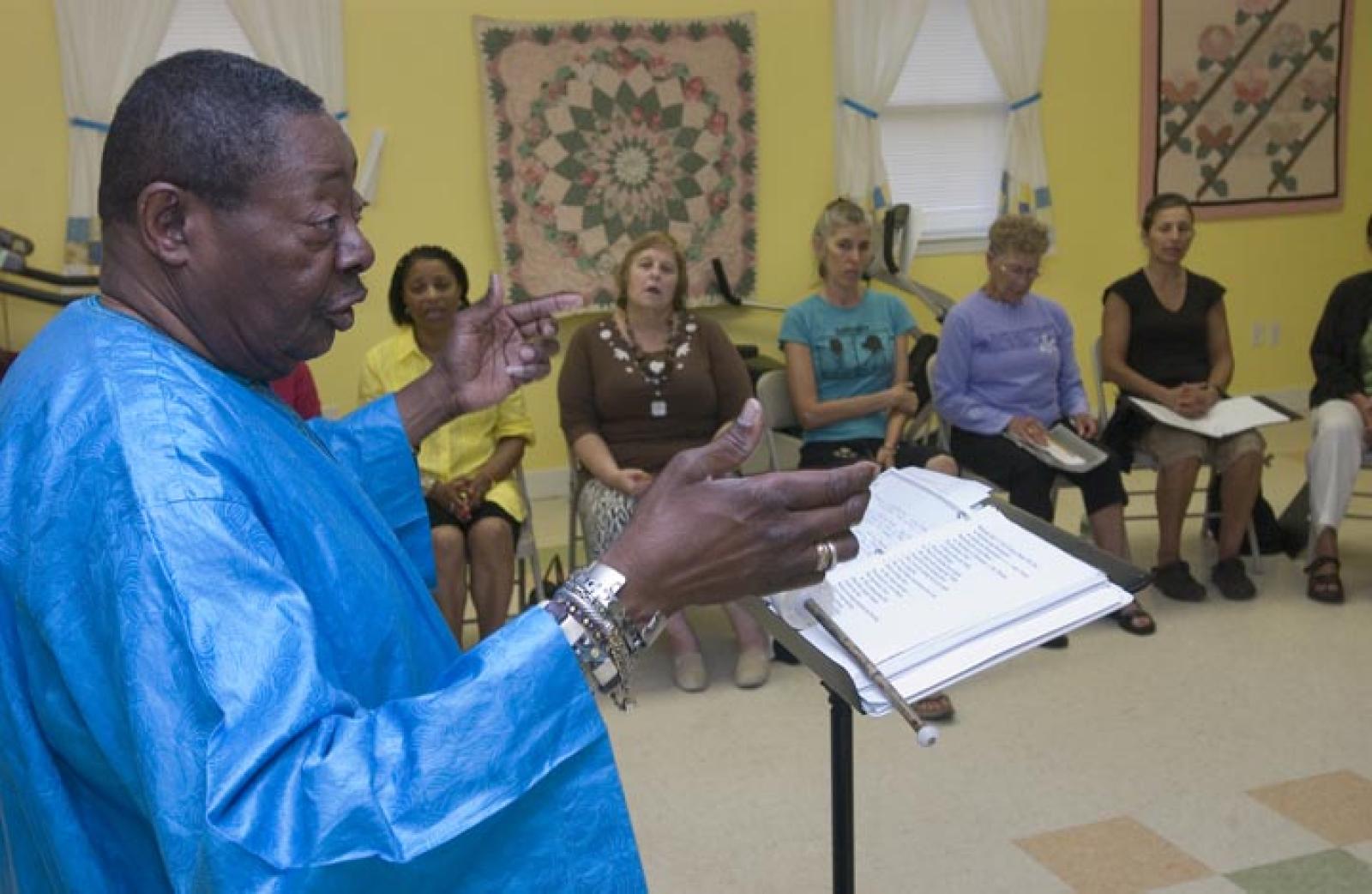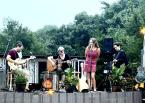The spirit of the human voice and its capacity to bring people together with melody and rhythmic movement is a big part of Jim Thomas and his spirituals choir. They perform tomorrow night at the Union Chapel in Oak Bluffs. The program is called Songs from the Field: the Mystery of Spirituals, and it includes songs and stories going back to the Civil War era.
As in the past, the 28-member choir will have the audience swaying and clapping along. The choir sings slave songs that carry a message and tell a story crossing the generations.
Mr. Thomas, 71, started the choir five years ago. For awhile it was named the NAACP Spirituals Choir, but eventually the name changed as the group developed its own independent identity.
“This is about sharing songs and their stories. A lot of people can sing these songs but they don’t know what they mean. Our goal is to share the meaning,” Mr. Thomas said.
Mr. Thomas is a native of Virginia. “I’ve had an interest in slave songs going back to when I was a child. I remember spending summers with my great-grandmother, who was born a slave,” he said. Her name was Anna Dukes. “I remember spending weeks with her in her log cabin, in Boliver, Tenn.,” he said.
Years later, as a college student at Fisk University in Nashville, Tenn., he joined the Fisk Jubilee Singers, a group made up of college students. “They are the group that popularized spirituals worldwide,” Mr. Thomas said.
“These spirituals were secret sacred songs of the slaves,” he said, adding: “They were used as a communications device.” After the Civil War, there was no longer a need to have secret songs to communicate, so there were no new spirituals after 1865.
For 40 years, Mr. Thomas worked for the American Red Cross in Washington, D.C., rising to the position of corporate equal employment opportunity officer. While he was working, he joined several singing groups that at times would perform at the Kennedy Center.
He started coming to the Vineyard in 1976. After forming the spirituals choir, he formed a nonprofit organization called the U.S. Slave Song Project; tomorrow night’s concert benefits that organization.
Many of the loyal singers have been with Mr. Thomas from the start. At a rehearsal on Wednesday night, the group quickly slipped into song after a quiet moment with their leader.
Before each rehearsal, Mr. Thomas asks all the members of the choir to share in a moment of quiet. He urges them to distance themselves from the drama of their day. “Take a deep breath,” he said.
Wearing a bright blue robe, Mr. Thomas conducted the rehearsal as if there already was a large audience in attendance. He stood straight-backed, his eyes on the choir members, as he swept his arms and hands through the air.
The group sang Wayfaring Stranger. Bob Lee pounded a drum with his palms. Barbara Linton shook and tapped a tamborine.
Tomorrow night’s program in the 1870 chapel will include organ music performed by Mr. Thomas’s friend Lavert Stuart. “He is a pipe organist from Cleveland and he going to play several pieces related to slavery,” Mr. Thomas said.
Mr. Thomas said he met the organist at a Della Hardman Day event five years ago. “We stayed in touch,” Mr. Thomas said.
The organ came to the church in 1924 and is highly regarded by both musicians and listeners. “It is a wonderful instrument,” Mr. Thomas said, calling the setting in the chapel ideal.
He said the night is dedicated to the story and music of slavery; during the evening he will unveil some of the secrets in the songs.
“The audience will have a chance to hear the Battle Hymn of Republic in the end. A lot of people don’t know how that song was started. It started with John Brown’s raid on Harper’s Ferry in October of 1859,” Mr. Thomas said. Later, the Union troops began singing John Brown’s Body, and from that song came one of America’s favorite patriotic songs.
It is such stories that help bring the songs alive, Mr. Thomas said. “I love to see the transformation in the faces of the singers, as they say ‘Oh, you are right,’” he said. “They get it.”
The show starts at 7 p.m. Tickets are $15.







Comments
Comment policy »